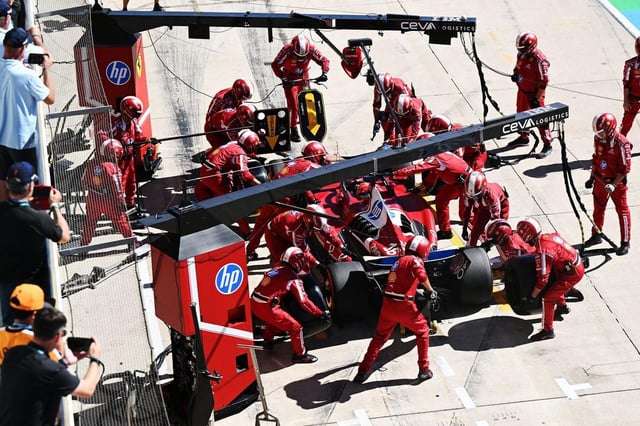|
Translation : Along with the biggest technical breakthrough in its history, Formula 1 could also face a significant change in its sporting regulations in 2026. The idea, supported by some teams (and championed by Liberty Media), has been under consideration for some time and would not be an entirely new development. We're talking about the mandatory double pit stop, a topic that's not new, but has been back in the news since the grip afforded by Pirelli tires discouraged team engineers from pursuing two-stop race strategies. In the last five Grands Prix, the winner's strategy has always been a one-stopper, and barring exceptional circumstances (the safety car at Zandvoort and the weather conditions at Silverstone), the last race to feature a two-stopper was Spielberg. For those who see double pit stops as an important variable for making races more exciting, these are tough times; teams are always considering limiting the race to a single stop for various reasons. Simulation software precisely calculates average lap times to manage tires according to a single-stop strategy, and although the difference with a double-stop simulation is minimal, the first scenario always prevails. A slower race pace favors temperature management (at a slower pace, the risk of overheating is significantly reduced), and a single stop also halves the risk of an unexpected stop and traffic management. In this context, the drivers are primarily focused on maintaining the target time (the reference time indicated by the simulations), a scenario that doesn't mesh well with the spectacle that Formula 1 aims to offer spectators. Hence the idea of imposing the mandatory two pit stops as a (potential) remedy against long stretches of racing in a "train-and-gun" fashion. The mandatory double pit stop is not entirely new; at Losail in 2023, the double pit stop was imposed for safety reasons, with a limit on the maximum laps that can be completed with each set of tires. In this context, the drivers are primarily focused on maintaining the target time (the reference time indicated by the simulations), a scenario that doesn't mesh well with the spectacle that Formula 1 aims to offer spectators. Hence the idea of imposing the mandatory two pit stops as a (potential) remedy against long stretches of racing in a "train-and-gun" fashion. The mandatory double pit stop is not entirely new; at Losail in 2023, the double pit stop was imposed for safety reasons, with a limit on the maximum laps that can be completed with each set of tires. The forced two-stopper solution in the Qatar GP allowed the team to evaluate the effects of a two-stop race, and it highlighted the possibility for drivers to push hard without having to worry about management. This is Liberty Media's goal, and according to information gathered by Motorsport.com, the mandatory two-stopper proposal will be put on the table at the next meeting scheduled by the Formula 1 Commission. In addition to gauging the teams' consensus, the meeting will also serve as an opportunity to explore a series of possible scenarios. One of the proposals would require the use of all three compounds chosen by Pirelli for the weekend in the race, leaving teams free to decide the sequence. The possibility of imposing two stops without compound restrictions will also be discussed as an alternative, eliminating the current requirement to use sets of at least two different compounds. The possibility of imposing a maximum mileage limit for each set, which must not exceed 45% of the race distance, will also be explored. It's not going to be a simple comparison. Some argue that the three-compound requirement will lead everyone to adopt a standard strategy, based on the principle that increasing the number of restrictions will reduce the number of possible choices. The teams' opinions will be interesting to understand what their respective simulation software reveals. Regarding the potential effects of mandating the use of three compounds, very different assessments emerged over the Mexico City weekend. According to some insiders, the use of three compounds could lead to different interpretations of the race; others believe it could backfire, risking teams making the same decisions and running the same number of laps per stint. A completely free strategy, except for the mandatory two stops, might find more support. The game, even on the table of the Formula 1 Commission, will be very open. submitted by /u/Darkmninya |



